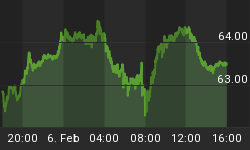I would have thought that the decoupling myth between global economies would have been completely discredited after the events of this past credit crisis unfolded. Back in 2007 and early 2008, investors were very slowly coming to the realization that the U.S. centered real estate crisis was going to dramatically affect our domestic economy.
However, the prevailing view at the time was that the global economy -- especially emerging markets -- would be almost totally immune from any such slowdown. But the truth was that emerging market economies took America's financial crisis directly on the chin, causing the Shanghai Composite Index to drop 70% in just one year.
Now investors are being told that the worsening sovereign debt crisis in Europe will leave the U.S. economy unscathed. The reason for the perma-bulls' optimism is based on the fact that America doesn't have a strong manufacturing base. In fact, manufacturing now represents just 10% of our once diversified and vibrant economy. Wall Street is now hoping that since we don't make many things to export to Europe, our GDP won't suffer a significant decline at all.
What investors have conveniently overlooked is the fact that 40% of S&P500 earnings are derived from foreign economies. And the seventeen countries that make up the Eurozone have collapsed into recession. That wouldn't be so bad if EU (17) wasn't the second biggest economy on the planet. Recent data points illustrate that the worsening recession in Europe will continue to bring down global GDP.
Credit Default Swap prices on 15 western European countries shot up 26% in the last month and Spanish banks now have over 8% of loans that are non-performing -- an 18 year high. European banks are keeping their governments afloat by loaning them money, which they in turn borrowed from the ECB. That cannot be a viable or sustainable situation. Many European economies will suffer massive inflation and sovereign default -- just as was the case in Greece -- within the next two years.
But don't rely on China to supplant falling demand from the Eurozone economies. China's economy is still driven by exports, which represent about 40% of their GDP. The problem here is that China's largest customers are the U.S., Japan and Europe. The U.S. is mired in stagflation, while Japan's growth is anemic at best and the E.U. is in recession.
The global slowdown will put further pressure on the U.S. economy and the earnings of multi-national corporations. Downward pressure on the U.S. economy is already becoming apparent. Data on home sales, industrial production, jobless claims and regional manufacturing surveys have all recently disappointed. U.S. productivity has fallen from 4% during 2010, to just 0.4% during all of 2011. S&P500 earnings growth has already plummeted from 14% during 2011, to just a 3% annualized rate in Q1 2012.
The fact is that we have a global economy that is intricately intertwined. And at this juncture there is no such thing as decoupling. Because of this, it is my view that equity markets will fall significantly this summer, as earnings fall and PE ratios contract. That will be the primary catalyst that brings global central banks back into play.
The Fed, ECB and BOJ will most likely launch further quantitative easing later this year in an effort to combat falling stock prices.















